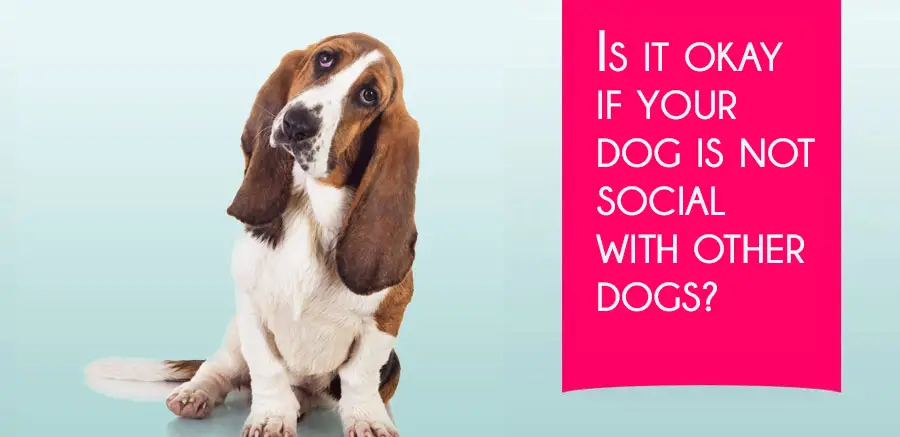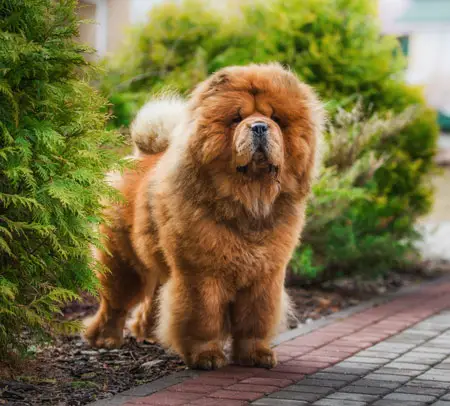Why does my dog ignore other dogs? Is it okay if my dog doesn’t like other dogs? Get answers to questions surrounding your dog’s behavior.
There are many possible reasons why a dog may choose to ignore other dogs, such as lack of socialization, fear or anxiety, past negative experiences, or simply individual personality traits.
As social animals, dogs typically thrive in the company of other dogs. However, some dogs may display behaviors of disinterest or act distant towards their canine counterparts.
By understanding why your dog may be ignoring other dogs, you can work to address any behavioral issues and help your furry friend develop healthy social relationships.
Read along to find out.
Suggested reading: Why Do Other Dogs Hate My Dog? (new tab)
5 Reasons Why Your Dog Ignores Other Dogs
1. Lack of Socialization
One of the primary reasons why your dog may ignore other dogs is due to a lack of socialization.
A vital part of a dog’s life is the development phase where they are exposed to the world as well as other dogs. Canines may get anxiety or fear when they are among canines they do not know since they were not socialized with other dogs early on.
As a consequence, they could start ignoring other canine companions.
2. Previous Negative Experiences
If your dog doesn’t like other dogs, it may be due to a past negative experience with other canines. Negative interactions with other canines may have a lasting impact on the socialization and behavior of a dog, especially over the course of their lifetime.
Dogs who have been subjected to traumatic experiences at the hands of other canines may develop trust difficulties, which, in turn, may cause them to experience worry and tension when interacting with other canines.
Prevailing Temperament
Your dog’s temperament is something to look out for as well. While certain dog breeds are inherently more outgoing than others, others lean more toward solitary behavior.
Some dogs may be naturally more reserved among other dogs due to inborn personality. In contrast to interacting with other dogs, some canines are naturally dominating and would rather develop a hierarchy inside their own pack and would abstain from interacting with other dogs they perceive to be less in the pack hierarchy
Training
Training methods can also play a role in how your dog behaves around other dogs. For example, if a dog is trained to be aggressive or territorial, they may become hostile or ignore other dogs when they encounter them.
On the other hand, if a dog is trained to be submissive or timid, they may avoid interactions with other dogs.
How your dog behaves towards other dogs may also be affected by the training techniques you use. Consequently, a dog that has been socialized to be submissive or timid may shy away from meeting new canine companions.
Health and Genetics
Some dogs’ social interactions with others may be impacted by physical or health conditions. When a dog is in pain or suffering, it may choose to avoid social interaction with other canines. There are a number of hereditary causes as well including neurological and behavioral disorders, that might make a dog uninterested in interacting with other dogs.

Every dog has a personality and demeanor that is entirely their own, and some dogs may not get along well in the company of other canines. Dogs who are naturally reserved or anxious around other canines may not want to interact with them since doing so could make them feel uncomfortable or afraid.
In addition, it’s possible that dogs would rather have their own space and not be disturbed by other dogs, which is another factor that might be contributing to their lack of interest in socializing with other dogs.
However, in situations where your dog shows signs of aggression or extreme fear towards other dogs, it is important to seek the help of a professional trainer or behaviorist.
Dogs that exhibit these behaviors can be a danger to other dogs and humans, and addressing these issues early on through professional training can help prevent future incidents.
It is essential to keep in mind that not all canines take pleasure in the company of other canine companions. Just like people, dogs have their own preferences and may prefer to spend time with their owners or other people more than they do with other dogs.
If you want your dog to have a happy and healthy life, it is essential that you, as the dog’s owner, understand and appreciate their individuality as well as their preferences.
Dog breeds that don’t like other dogs
Many dog breeds are social animals and thrive on the company of their fellow canines. However, there are dog breeds that are often not as friendly with other dogs, and here are a few to take note of
1. Chow Chow

The Chow Chow is an example of such a breed. Chow chows were originally designed for hunting and guarding, thus they have a natural tendency to be protective of their human family and their territory.
They tend to be territorial, thus, they may not get along with other dogs.
2. Shar Pei
The Shar Pei has a reputation for being reserved and headstrong, as well as possessive and protective of its human family. Although early socialization and training might reduce the likelihood of a dog developing violent tendencies, it is still necessary to keep an eye on the pet whenever it is with other animals.
3. Akita
The Akita is another dog breed that has a potential for canine aggressiveness. Despite being powerful and very devoted, Akitas were originally developed for hunting. Because of their potential for aggression against other dogs, they need an authoritative and knowledgeable owner.
4. Dalmatians
Despite the breed’s positive reputation, Dalmatians can have trouble getting along with other canines. Their high hunting drive or protective instincts may play a role in this. However, Dalmatians may live peacefully among other dogs if they are trained and socialized properly.
5. Basenji
Finally, the Basenji is another possible non-friendly dog breed. A high prey drive gives them the ability to identify many different tiny creatures as potential meals. Moreover, they may be highly possessive of their territory and may not get along well with other dogs.
It’s crucial to keep in mind that although certain breeds may not always get along with other canines, every dog is an individual with his or her own quirks and preferences. Dogs of any breed may benefit from early and consistent training and socialization with other pets.
1. Socialize your dog
Taking your dog to dog parks, daycares, or restaurants that welcome four-legged friends is a terrific way to encourage socialization and learning how to socialize with other dogs.
Your dog’s socialization and reduced nervousness around other dogs might benefit greatly from frequent visits to these locations where dogs can meet and play.
You may further encourage your dog to socialize by playing with others and rewarding them with goodies and toys that you bring along. Your dog’s health and happiness will improve, and you’ll reduce the risk of future behavioral issues if you take this approach to socialization.
2. Start in a controlled environment
The process of socializing your dog begins with introductions to other canines. This has to be done in a secure setting with only one or two well-mannered dogs as a starting point.
This might be a private yard or a public dog run. Give them time to smell each other out and grow comfortable with one other before introducing more activity.
Maintain constant vigilance on their interactions and be prepared to step in if required. The confidence and social skills of your dog will benefit greatly from early exposure to other canines.
3. Observe body language
It’s vital to watch your dog’s body language and the body language of other dogs as you socialize them. Watch for indicators of anger, fear, tension, or discomfort and act accordingly.
You should keep an eye out for signs of discomfort or danger, such as a rigid body, increased hackles, growling, or barking from your dog. If you see any of these behaviors, it may be best to take your dog out of the social setting until they are more comfortable.
Your dog’s socializing experience may be made more pleasant and stress-free if you pay attention to his or her cues and step in when required.
4. Use positive reinforcement
A dog’s behavior towards other dogs may be modified by using positive reinforcement to promote desirable behaviors and discourage undesirable ones. The idea is to use positive reinforcement, such as treats or verbal praise, to encourage your dog to behave well with other dogs.
Positive reinforcement is useful because it can be targeted towards improving certain behaviors in canines. If you want your dog to sit before approaching another dog or to come when called, for instance, you may reinforce this behavior by rewarding it every time it happens.
Teaching your dog appropriate behavior with other dogs via a combination of positive reinforcement and mild punishment will result in enjoyable and safe interactions for everyone involved.
5. Practice patience.
To help your dog feel at ease in new situations and get along well with other dogs and humans, socialization is a must. However, this may be a time-consuming and laborious procedure, so patience is required from start to finish.
Keep in mind that not all dogs are equal, and some may need more time than others to adjust to new environments. As a result, you should never push your dog to socialize before it is ready.
The key is to gradually build up your dog’s confidence and comfort levels. Start by introducing your dog to a few friendly dogs and people and allow them to get acquainted with one another in a controlled environment. Slowly introduce your dog to more dogs and people, keeping a careful watch on their behavior and making sure they are comfortable at all times.
Final thoughts: Why does my dog ignore other dogs?
Even while it is not unusual for dogs to ignore other dogs, this behavior might be concerning for owners who wish their dogs to develop friendly relationships with other dogs.
You may assist your dog in becoming more at ease and social with other dogs by first gaining an understanding of the various causes that may be driving his or her behavior, and then taking proactive steps to address those causes.


